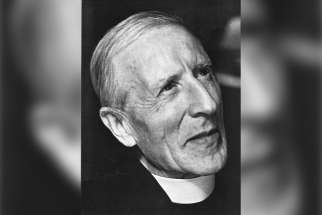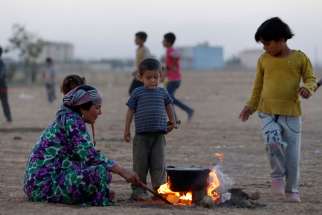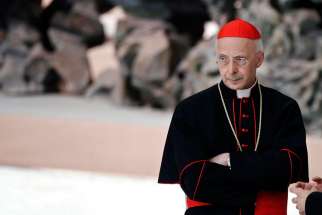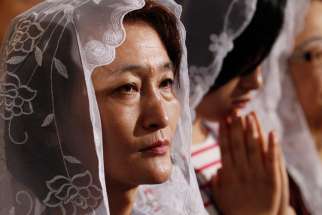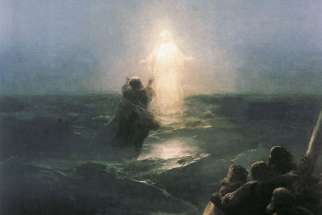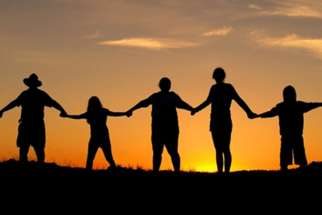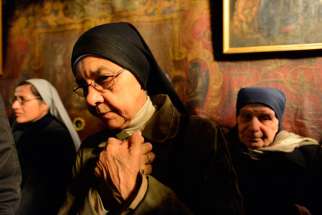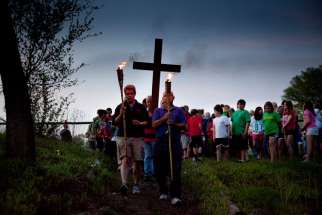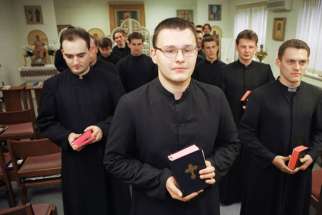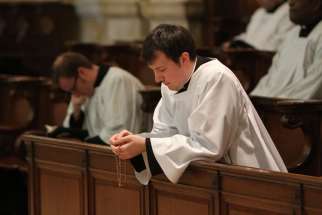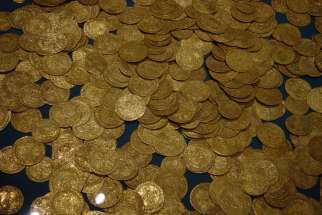A eucharistic prayer over an awakening world
God gives sacred permission to be human
Sometimes certain texts in the Bible make you wonder: Is this really the Word of God? Why is this text in Scripture? What’s the lesson here?
Fatherless at the depth of our being
Anthropologists tell us that father hunger, a frustrated desire to be blessed by our own fathers, is one of the deepest hungers in the world today, especially among men. Millions of people sense that they have not received their father’s blessing. Robert Bly, Robert Moore, Richard Rohr and James Hillman, among others, offer some rich insights into this.
May your Kingdom come, just not yet
How we react to criticism and opposition
Have you ever noticed how we spontaneously react to a perceived threat? Our primal instincts tend to take over and we instantly freeze and begin to shut all the doors opening to warmth, gentleness and empathy inside us.
Our timidity in the face of God’s abundance
My youth had both its strengths and its weaknesses. I grew up on a farm in the heart of the Canadian prairies, a second-generation immigrant. Our family was a large one and the small farm we lived on gave us enough to live on, though just enough.
Fearing our own maturity
Our bodies and our souls each have their separate aging process, and they aren’t always in harmony. Thus, T.E. Laurence, in The Seven Pillars of Wisdom, makes this comment about someone: “He feared his maturity as it grew upon him, with its ripe thought and finished art, but which lacked the poetry of boyhood to make living a full end of life ... his rangeful, mortal soul was aging faster than his body, was going to die before it, like most of ours.”
Walking on water, sinking like a stone
Faith isn’t something you ever simply achieve. It’s not something that you ever nail down as a fait accompli. Faith works this way: Some days you walk on water and other days you sink like a stone. Faith invariably gives way to doubt before it again recovers its confidence, then it loses it again.
Linking human energy to God within
Few thinkers have influenced me as profoundly as Robert L. Moore. Moore is a scholar who has spent almost 50 years studying human energy from the perspective of psychology, anthropology and spirituality. Few scholars are his equal in linking human energy, even when it is raw and grandiose, to the image and likeness of God inside of us. He merits an audience.
On being perpetually distracted
There’s a story in the Hindu tradition that runs something like this: God and a man are walking down a road. The man asks God: “What is the world like?” God answers: “I’d like to tell you, but my throat is parched. I need a cup of cold water. If you can go and get me a cup of cold water, I’ll tell you what the world is like.” The man heads off to the nearest house to ask for a cup of cold water. He knocks on the door and it is opened by a beautiful young woman. He asks for a cup of cold water. She answers: “I will gladly get it for you, but it’s just time for the noon meal, why don’t you come in first and eat.” He does.
We often weary in our patience
Before the airline hijackings of Sept. 11, 2001, before the shoe-bomber and others like him, it was simpler to travel by air. You didn’t need to take off your shoes to pass through security, you could carry liquids with you, laptops and other electronic devices, if you had any, did not have to be brought out of your carry-on bags. The door to the cockpit wasn’t barricaded with steel, and there was much less paranoia in general about security. You even got to see the pilot occasionally.
A pilgrimage through nature, desire and soul
Nature, desire and soul, we rarely integrate these well. Yet they are so inextricably linked that how we relate to one deeply colours the others; and, indeed, spirituality itself might be defined as what we each do in terms of integrating these three in our lives.
Accepting truth, whatever its cloak
When I was a student in the seminary, I had two kinds of teachers: One kind, precisely because they were fiercely loyal to all that is Christian and Catholic, would have us read great secular thinkers but always with the intent of wanting to help show where these thinkers were wrong. Our intellectual task as Catholic seminarians, they would tell us, is to be able to defend Catholicism against the kinds of criticisms found in the writings of these secular, sometimes anti-Christian thinkers and to keep our own faith and teaching free of their influence.
God’s quiet presence in our life
The 12th-century Persian poet Rumi submits that we live with a deep secret that sometimes we know, and then not.
We need to share our riches with the poor
We need to give away some of our own possessions in order to be healthy. Wealth that is hoarded always corrupts those who possess it. Any gift that is not shared turns sour.

